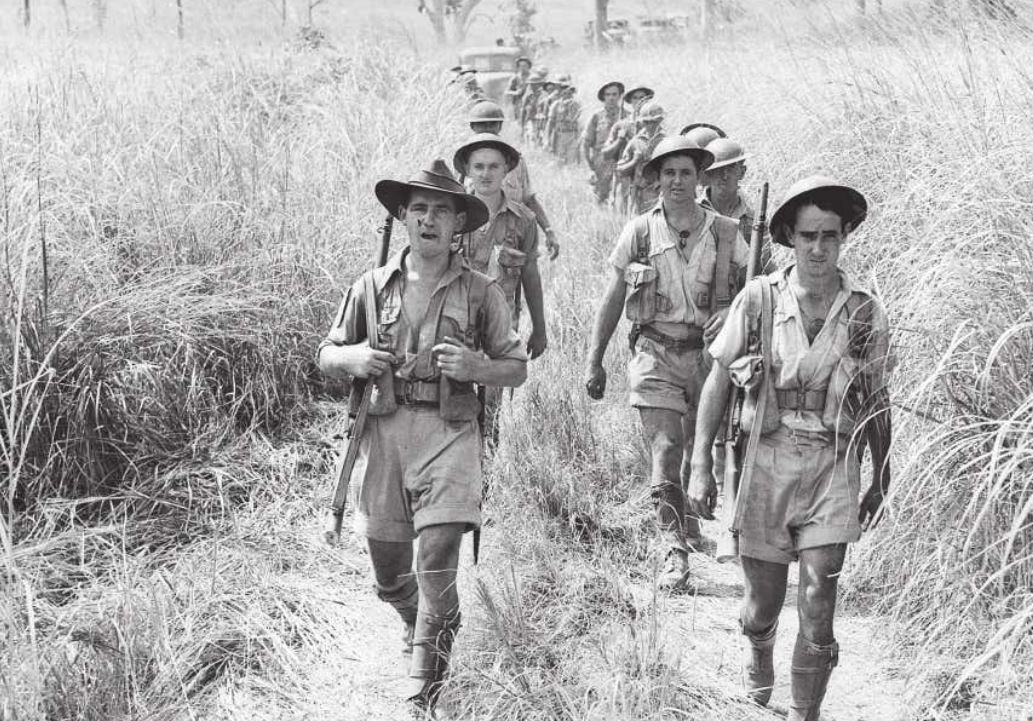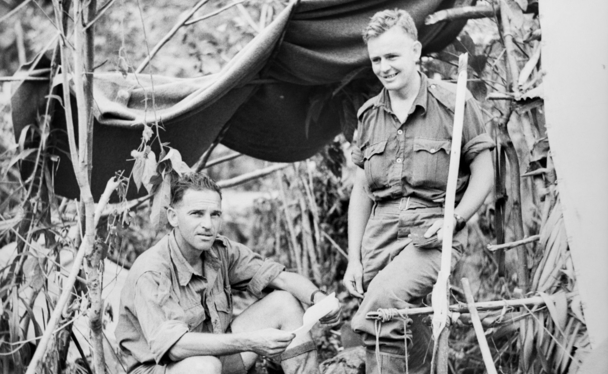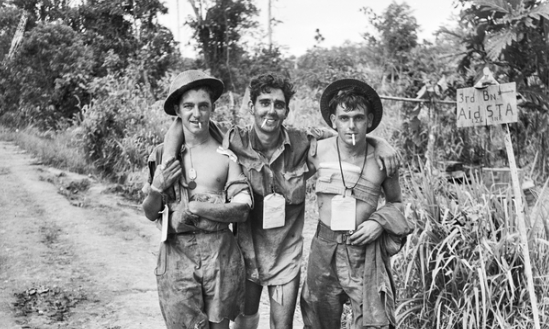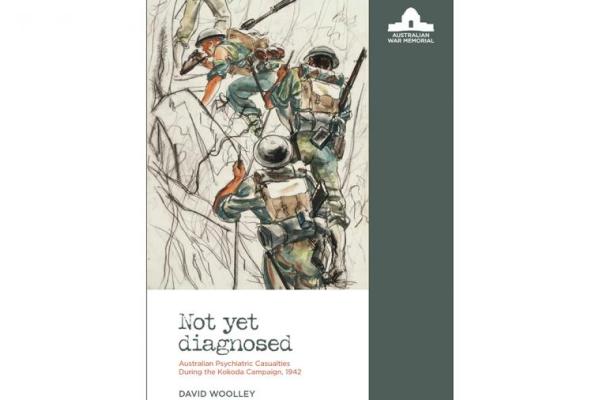Kokoda Trail Campaign
2022 marks the 80th anniversary of the Kokoda Trail Campaign.
By July 1942, the Japanese had swept all before them in a seemingly unstoppable advance through south-east Asia and into the Pacific. This series of victories brought Japanese forces into Australian territory in New Guinea and Papua, moving closer to the Australian mainland. The bombing of Darwin in February, in particular, heightened fears that an invasion was imminent.
For any attack south towards Australia, the Japanese had to take Port Moresby. Similarly, any Allied attack north through New Guinea required Port Moresby as a base. After failing to take Port Moresby by sea, the Japanese landed at Gona on the northern coast of Papua on 21 July 1942. They quickly began their advance overland across the Owen Stanley Range.
Raw, inexperienced Australian militiamen of the 39th Battalion, and Papuan soldiers from the Papuan Infantry Battalion, were the first to encounter the Japanese at Awala. They were forced to withdraw to the village of Kokoda, which became the scene of intense action when the Japanese attacked on 29 July.
Over the next two weeks, the Australians lost the village, recaptured it and lost it again in a series of intense, unrelenting close-quarters battles. They fell back to Deniki and beyond.
Forced back along the Kokoda Trail, the Australians fought several more tenacious rear-guard actions. On 29 August, after four days of fighting, the Japanese broke through the Australian defences at Isurava.
The Australians continued their fighting withdrawal towards Port Moresby, finally digging in on Imita Ridge, less than 50 kilometres from Port Moresby; here the Japanese advance was finally halted.
With mounting casualties and supply lines stretched to breaking point, the Japanese began their withdrawal on 24 September. The roles were now reversed, and the Australians began their pursuit as the Japanese fought delaying actions over the same ground which had already been fought over so bitterly.
When Kokoda village was finally liberated on 2 November, the fighting was not over. Fighting around Oivi and Gorari would bring the Australians to the Kumusi River – but for the exhausted Australians the battles to capture the beachheads of Buna, Gona, and Sanananda were still ahead.
Over 600 Australian lives had been lost, over a thousand men had been wounded, and up to three times that many were evacuated because of illness. Victory would not have been possible without the tireless service of the Papuan carriers. They shared in the terrible conditions, carrying supplies and ammunition up the rugged trail, and carrying the sick and wounded as they returned.
Group portrait of 9 Platoon, A Company, 2/14th Infantry Battalion on the Kokoda Trail. 16 August 1942
Articles
Explore our articles relating to the Kokoda campaign.
Remembering 1942: The end of the Kokoda campaign
On this day in 1942 Australian troops were closing on Kokoda, the village on the northern side of the Owen Stanley Range which gave its name to one of the epic battles of the war in the Pacific.
The Kokoda “Track” or “Trail”?
Read about the history of how the Kokoda trail got it's name
Remembering the first-year battles of the Pacific war
Read about Kokoda and Milne Bay
The greyhounds of Kokoda
The 39th Battalion was seen as heroic but the 53rd Battalion was derided; the clues lay in the circumstances of their formation.
Lost Hero
Only one Victoria Cross was awarded for actions at Kokoda but at least four VC recommendations were made. Other than Kingsbury’s, all were rejected for unknown reasons, and lesser awards substituted.
Boys on the Kokoda Trail?
It has often been claimed that many who fought this battle were teenagers - but were they really?
Not yet diagnosed
Not yet diagnosed examines the incidence, nature and causes of psychological breakdowns suffered by Australian soldiers during the fighting along the Kokoda Trail, in the Owen Stanley Range in 1942.
The Kokoda Track - Australians in New Guinea
Dr Karl James, Head of the Military History Section at the Australian War Memorial, talks about the Kokoda Track. Should it be seen as a tragedy or in fact a vitally important military victory?





